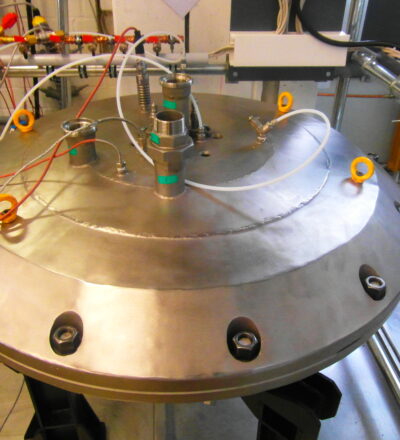DSM, Nouryon and Huntsman researched the potential of rotating packed beds with the TU Dortmund and the Institute for Sustainable Process Technology (ISPT). RPB technology offers many advantages, as the case studies prove. And there are now new guidelines for design and process parameters of RPBs.
This is a sneak preview of a Dutch article published in Chemie Magazine. Read the full article here.
They are sometimes referred to as the cathedrals of the chemical industry, the -sometime- tens of meters high distillation columns for the separation of mixtures of substances. These columns have dominated the image of the chemical industry in Europe for decades. Gravity plays an essential role in the processes in these columns. On the long run this can change by using process equipment based on centrifugal forces. In recent years, a great deal of national and international research has already been conducted into its operation.
The most recent study, from 2016 to 2020, was conducted through a public-private partnership, funded through a TKI grant and supervised by the Institute for Sustainable Process Technology (ISPT). Together with the TU Dortmund, three VNCI members in the ImPaCCT project investigated the potential of this technology in three industrial case studies: DSM, Nouryon and Huntsman.
Acknowledgement
This project is co-funded by TKI-Energy with the supplementary grant 'TKI- Toeslag' for Topconsortia for Knowledge and Innovation (TKI’s) of the Ministry of Economic Affairs and Climate Policy.
